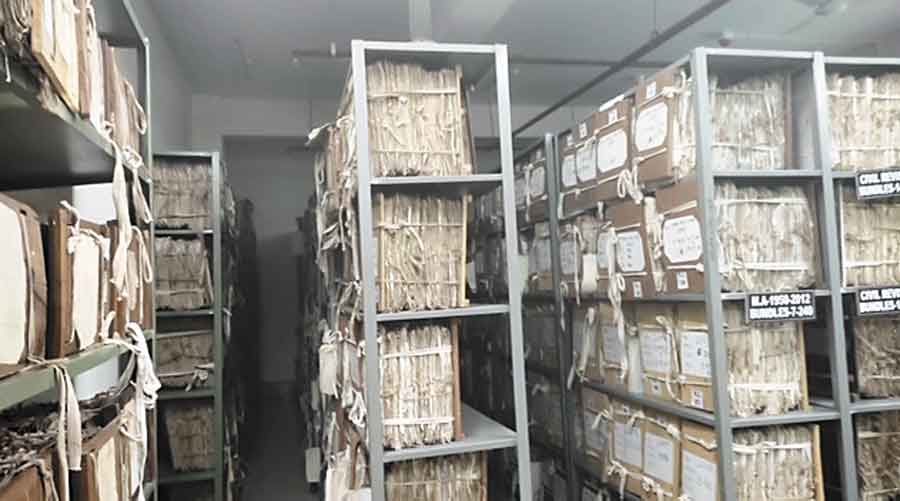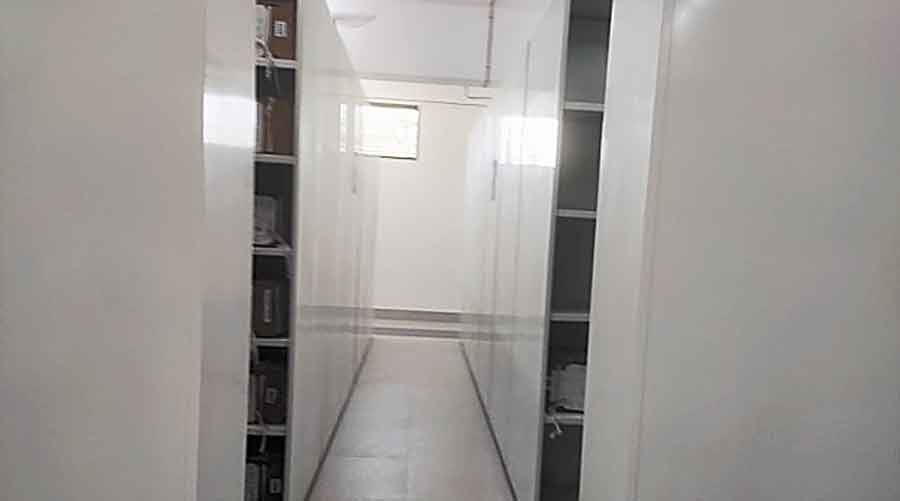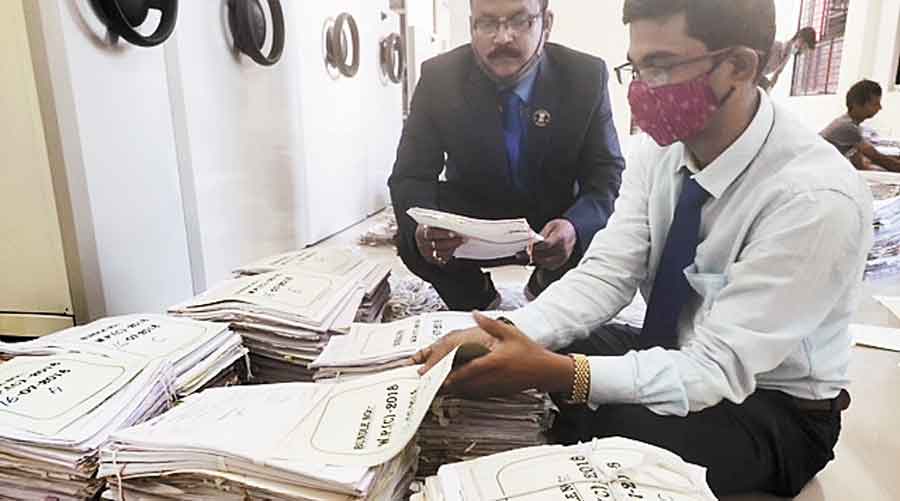The Orissa High Court has sought the help of Indian National Trust for Art and Cultural Heritage for the preservation of its extremely fragile case records.
These records date back to 1800 with records of cases from Patna, Calcutta and Madras high courts. Before the Orissa High Court was set up in 1948, the Patna, Madras and Calcutta high courts were dealing with cases originating from Odisha.
State convenor Intach and former director general of police A.B. Tripathy told The Telegraph, “Chief Justice of Orissa High S. Muralidhar has a keen interest in proper conservation of old records. The Intach had already had a meeting with the chief justice on this issue. Director, Intach conservation centre has made a presentation on how the records will be conserved and later stored. We have expertise in this area.”
Director, Intach Conservation Institute, Mallika Mitra said: “We will soon submit a detailed project report to the high court on how to keep fragile records safe and secure. A clear message has been received from the chief justice that all the fragile records should be conserved, preserved and stored in a proper way so that the future generation can refer to them when required.

The fragile records in the record room of RRDC in Orissa High Court. The Telegraph
“The digitisation of these records is not possible until they are preserved properly. We will impart training to the staff of the high court on how to do this job in a scientific manner.”
At present, 11,217 fragile records are being kept in the state of the art Record Room Digitisation Centre (RRDC), a sprawling complex spread over a two-acre area located one and half km away from the Odisha High Court. Out of 11,217 fragile records, 421 records belong to the 1813-1861 era.
When this correspondent, with the permission of the authorities, visited the fragile record room this week in Cuttack, astonished to see how carefully the fragile records have been stored. The staff were busy sorting out old records, digitising them and making PDF files and placing them in the almirahs.
The fragile records include the one of a case dating back to 1917 that was pleaded by Janaki Nath Bose, an eminent lawyer of his time and father of Netaji Subhas Chandra Bose.
“Go through the file, the case was disposed of on April 2, 1917. Another significant record was of 1918. Odisha’s eminent lawyer Madhusudan Das (Das founded the Utkal Sammilani which worked for the creation of Odisha as a separate province. Modern Odisha was established on April 1, 1936) appeared as the learned counsel and the case was disposed of on December 19, 1918.

The fragile records in the record room of RRDC. The Telegraph
“The case record of Sadar Diwani Adalat starting from 1814 to 1833 has also been preserved. There is tremendous effort to ensure that the legal history of the state is preserved properly. Getting a pat on the back from the chief justice himself, we all are working round the clock,” said Amiya Mohanty, superintendent of the civil record room of the RRDC.
“The fragile records are so old that its not possible to open and scan them. Since they cannot be digitised, these fragile records have been kept in their original form under special care for long-term preservation. We ensure permanent preservation of fragile records in their original form in earmarked fragile record rooms,” said a senior official of the Orissa High Court.
The RRDC is like a single window facility for the storage, digitisation, preservation and retrieval of disposed-of case records or legacy records, These records can now be accessed for reference from the courtroom or any bench over a secure network.
Though work on the digitisation of records began in the high court in 2018, it picked up pace after Justice S. Muralidhar took charge as the chief justice on January 4, last year.
“He has been a pioneer in the field of having paperless court. He ensured that digitisation work in this high court gains required momentum," said officials, adding that in the civil record room 548033 records would be digitised. So far 312526 records have already been digitised and the remaining 228742 records would be digitised in phases,” said an official.
Anupam Patra, who is leading the record digitisation project, maintained that more courts would become paperless in the coming days. “Currently digitisation of records is underway in four districts: Balasore, Cuttack, Ganjam and Sambalpur. The RRDC is also undertaking the exercise for the Cuttack district court,” said high court officials.










